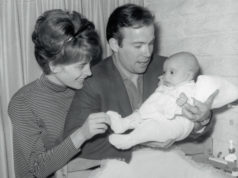Without director George Romero, there would have been no scores of horror movies that sought to make sense of what was, and is, going on with the world.
“They’ re coming to get you, Barbara.” That phrase completed the exposition in “Night of the Living Dead.” It’s when the titular creatures began to rise and make converts, albeit slowly and with force. It’s also when producer-director George Romero burst onto the scene, delivering a movie destined for cult classic status.
On July 16, Romero headed back toward the earth in death. Whether he will stay there remains to be seen. Born in the Bronx on February 4,1940, the director graduated from Carnegie Mellon University in Pittsburgh in 1960. He went on to produce short commercial films for Fred Rogers. Yes, that Fred Rogers.
Then he was off, albeit in a calculated manner, much as the zombies he would become famous for. Between “Night of the Living Dead, ” released in 1968, and his last directorial offering, “Deadtime Stories 2, ” released in 2011, Romero directed only 16 films. Most were not about zombies. Creating a genre was sufficient, and he had no need to keep returning to that well. His acolytes, much more quick and keen than those Barbara was warned about, would carry that torch for him. Their results varied.
Of Zack Snyder’s 2004 remake of “Dawn of the Dead, ” Romero said, “It was better than I expected. I thought it was a good action film. The first 15,20 minutes were terrific, but it sort of lost its reason for being. It was more of a video game. I’ m not terrified of things running at me; it’s like ‘Space Invaders.’ There was nothing going on underneath.”
“ The Walking Dead ”? “Basically it’s just a soap opera with a zombie occasionally. I always used the zombie as a character for satire or a political criticism, and I find that missing in what’s happening now.”
You get to be critical in that way when you start with Mr. Rogers and then create a genre. Regardless, his raison d’ être, as it were, was established and we should listen, particularly as we’ re currently in a time when everything is political.
Not that Romero didn’ t have a point with his films. When discussing why he gravitated toward zombies rather than vampires or other archetypal beings escaping death’s grasp, he said, “They are multi-purpose. You can’ t really get angry at them, they have no hidden agendas, they are what they are. I sympathize with them. My stories have always been more about the humans and the mistakes that they’ ve make and the zombies are just sort of out there.… They’ re the disaster that everyone is facing, but my stories are more about the humans.”
In “Night of the Living Dead, ” a film released in 1967, the hero is a black man. His race had absolutely nothing to do with the story. In “Dawn of the Dead, ” the original, the setting in a mall invited viewers to think about humans’ “ consumerism and reliance on material possessions. ” Sure, it was suggested that the humans were the zombies, but he didn’ t beat us over the head with it as though we were literal zombies.
With “Day of the Dead, ” Romero was sowing his oats . “I think it’s the campiest and the reason I like it the most is that I had the best time making it. Everyone in the cast was friends and we had a wonderful time doing it. We were all happy together and it was just great.”
In other words, his focus was still on the humans, it was just narrowed. Rather than thinking about all of mankind, he’ d shifted his sights to those in his immediate orbit. Surely he still had opinions, but his concern was on how his opinions and efforts affected that narrow group working on that particular film. The plodding disasters were still out there; his line of defense had simply been rebuilt around those in his base camp at the time.
Released in 1985, “Day of the Dead” conforms to the vampire/zombie hypothesis of the economy. By way of example, “The Lost Boys” was released just two years later, deep in the ‘80s and Reagan. Even if that previous link is overwrought for effect, “The Lost Boys” was certainly replete with deviancy, parasitical behavior, and fear. There was no plodding. The characters had to run to avoid the disasters they were facing, chiefly the would-be parasites threatening their families.
Without Romero, without zombies, there would have been no “The Lost Boys.” Nor would there have been scores of other horror movies that sought to make sense of what was, and is, going on with the world. The horror director may be the most reality-based of any of the filmmakers working at any given time. Through the impossible, they invite us to think about what is possible, and what is happening at any given time.
That’s not to say they always get it right. Artists offer us a view of the world through their particular lens. Sometimes we agree, other times we disagree. But if, like Romero, we keep our eyes trained on the humans who are the important part of the story, then we might avoid being distracted by the berserkers and rampagers of lore and imagination, and our own biases. Instead, we can focus on the plodding disasters that are really coming to get us, and on our base camps and remember to pay special attention to our friends and families, those with whom we can have a wonderful time.






